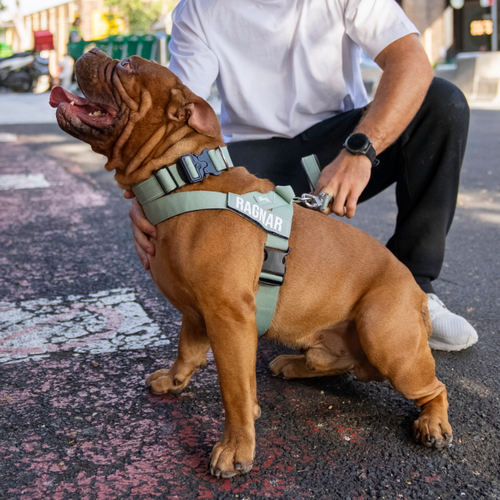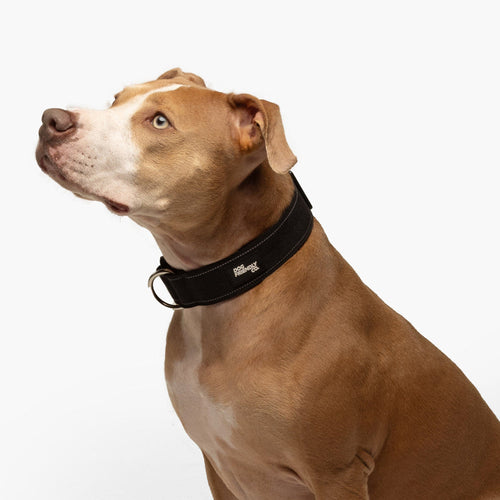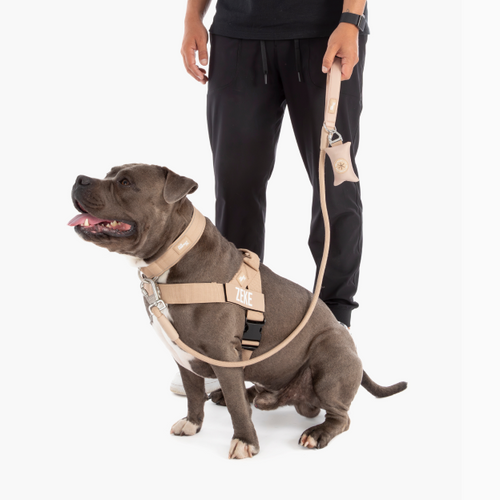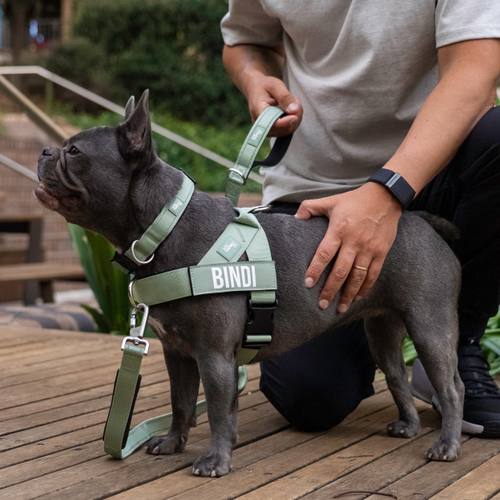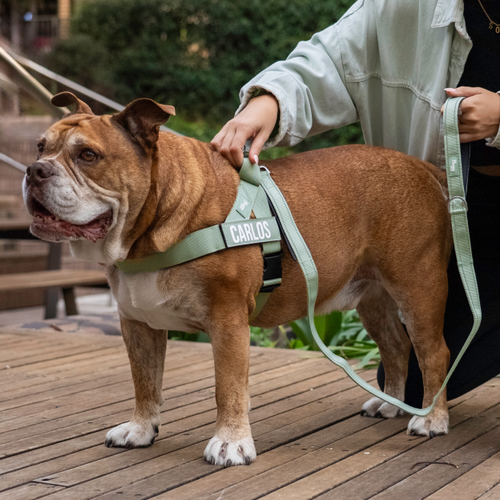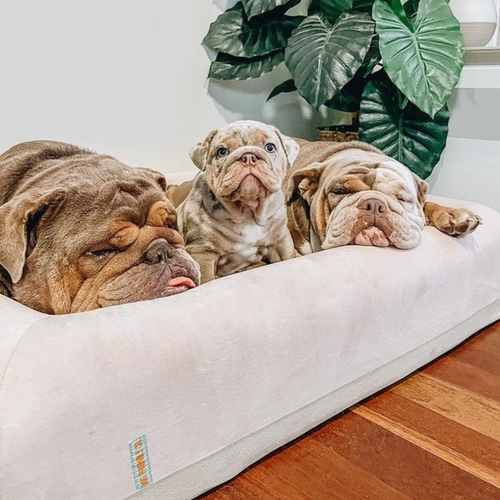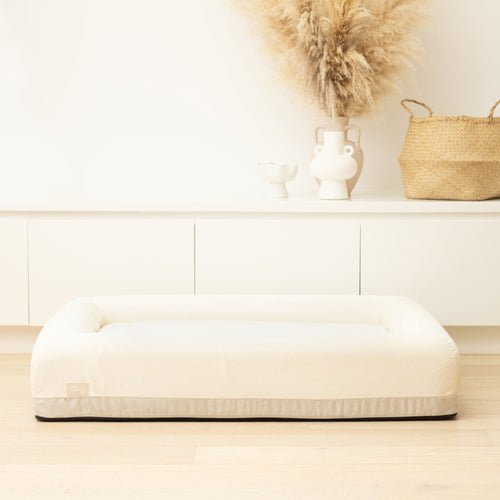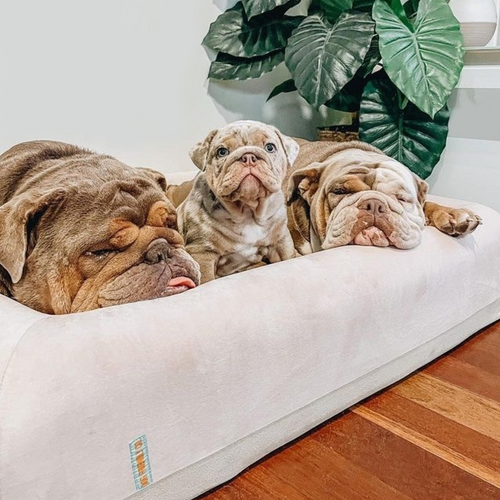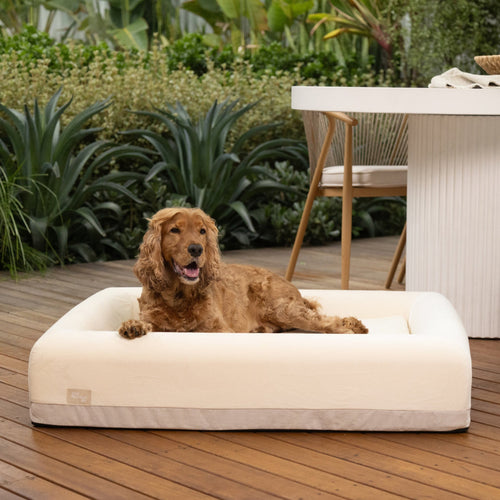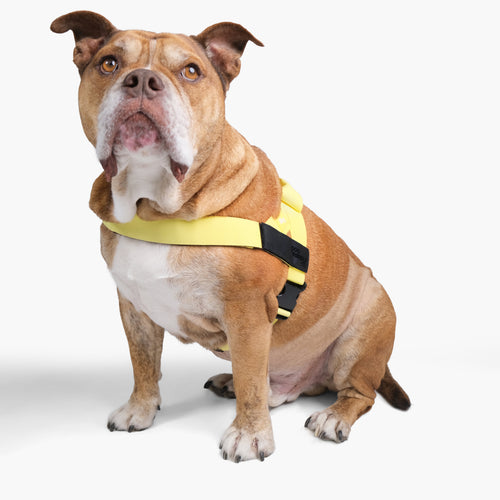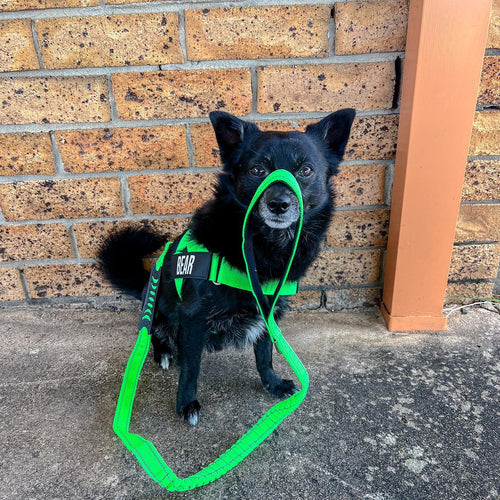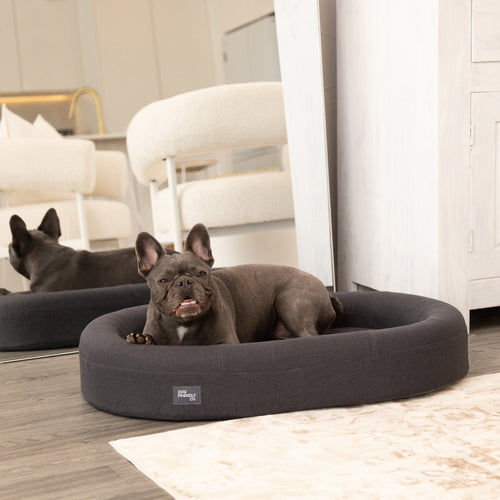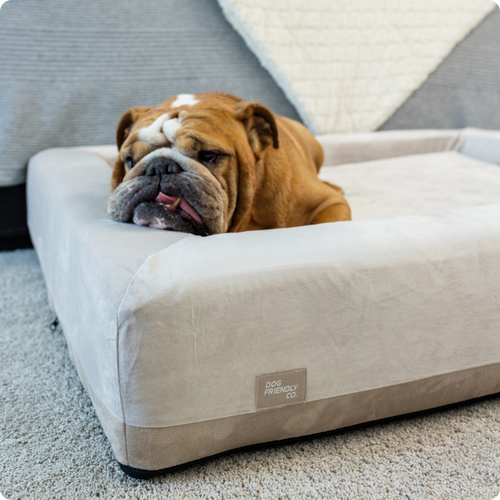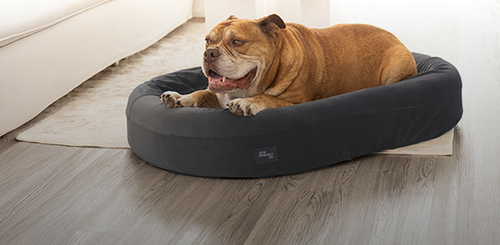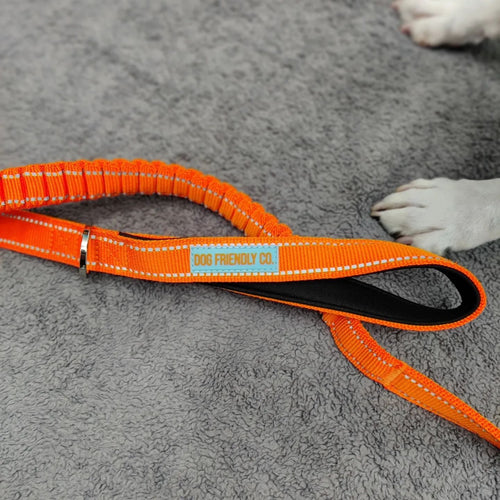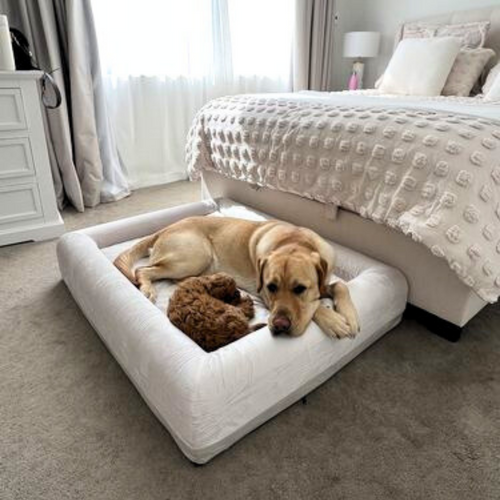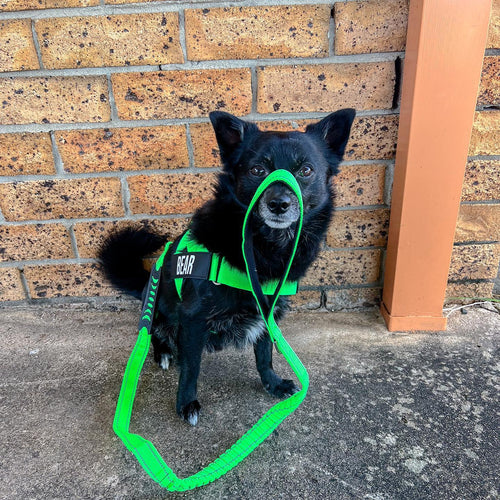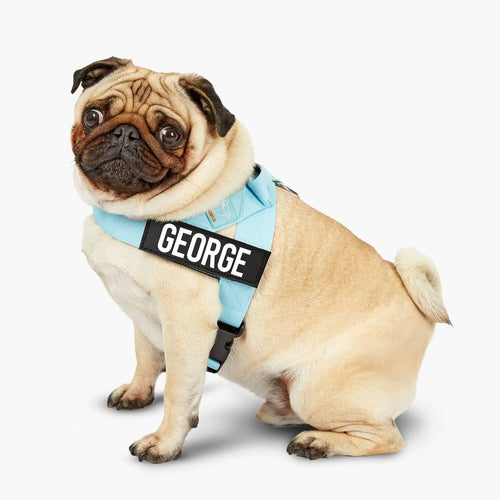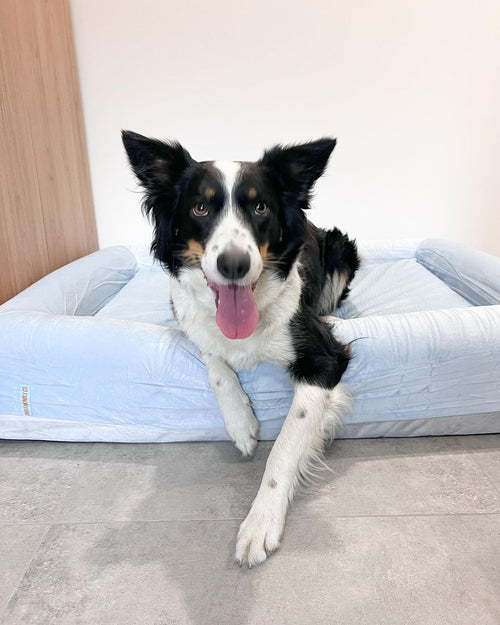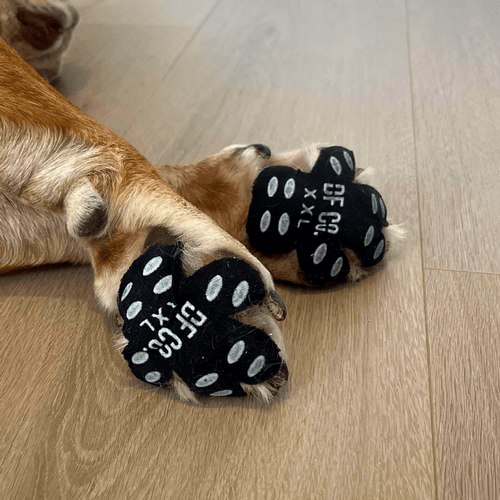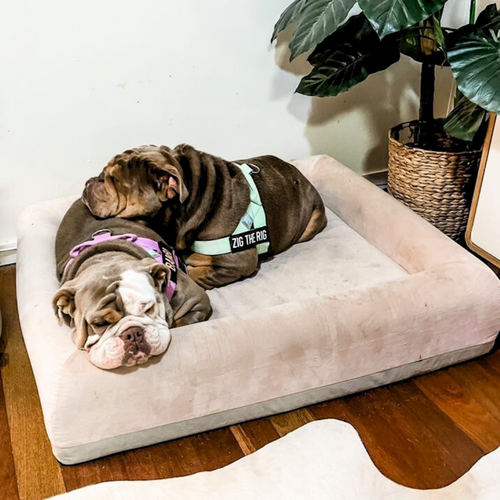If your dog has suddenly started peeing on your bed, you're likely feeling frustrated and concerned. It's a common issue many pet owners face, but understanding the root causes is the first step toward solving it. In this article, we’ll explore the reasons behind this behaviour and provide actionable solutions to help you and your dog get back on track.
Understanding the Behavior
When your dog starts peeing on your bed, it can be frustrating, but it’s important to remember that dogs don’t act out of spite or malice. This behaviour is often rooted in their natural instincts or responses to certain situations. By understanding these underlying motivations, you can take steps to address the issue effectively.
Natural Instincts
Dogs are territorial animals, and urinating in certain areas is a natural way for them to mark their territory and establish a sense of security. Your bed, which carries your scent, can feel like a safe space for your dog, and they may urinate there as a way to reinforce their bond with you or to claim the area as part of their territory. This behaviour is often driven by instincts that have been ingrained in dogs for generations. While it can be inconvenient, it’s not a sign of disrespect or defiance.
Gender Differences
The motivations behind bed-peeing can vary depending on whether you have a male or female dog. Male dogs, particularly unneutered ones, are more likely to engage in territorial marking, especially if they feel their environment is being threatened by new scents or other animals. Female dogs, on the other hand, may be influenced by hormonal changes or their reproductive cycle, which can cause sudden changes in their urination habits. Understanding these gender-specific factors can help you better address the behaviour.
Common Reasons for Sudden Bed-Peeing Behavior
There are several reasons why your dog may suddenly start peeing on your bed, ranging from medical conditions to changes in their environment or routine.
Medical Issues
- Urinary Tract Infections (UTIs): UTIs are a common cause of sudden urination accidents. If your dog is experiencing discomfort or has a heightened urge to urinate, they may not make it outside in time, leading to accidents on your bed or other areas of the house.
- Incontinence: As dogs age, incontinence becomes more common, especially in senior dogs. Certain medical conditions like diabetes or kidney disease can also lead to bladder control issues. If your dog is having accidents, it’s important to rule out these potential health problems.
- Other Medical Conditions: Diseases like Cushing’s disease or hormonal imbalances can also affect your dog’s ability to control their bladder. Consulting with a vet is key to identifying whether a medical issue is at play.
Behavioural Reasons
- Anxiety or Stress: Changes in the environment or routine can trigger anxiety or stress in dogs, leading them to urinate in unusual places like your bed. Separation anxiety is another common cause, as dogs may feel insecure or anxious when left alone, prompting them to seek comfort in your bed.
- Territorial Marking: If your dog feels threatened by new pets, people, or unfamiliar scents in the house, they may start marking their territory, which often includes high-value areas like your bed.
- Submissive Urination: Dogs that are more submissive in nature may urinate on your bed as a way to show submission, particularly if they are feeling overwhelmed or anxious. This behaviour can often be confused with disobedience but is usually a sign of stress.
Environmental Changes
- New Household Members: The arrival of a new baby, guest, or pet can disrupt your dog’s routine and sense of security, leading to accidents. This change in their environment can make them feel uneasy, and they may respond by peeing in areas that carry your scent, such as your bed, to seek comfort.
- Changes in Routine: Even small changes to your daily schedule, such as working different hours or moving furniture, can stress your dog. Dogs thrive on routine, and any disruption can lead to behavioural changes, including accidents.
Training and Reinforcement Issues
- Incomplete House Training: If your dog hasn’t been fully or consistently house-trained, they may not understand where it’s appropriate to go. Even dogs that were once fully trained can regress if there has been a lack of reinforcement or inconsistency in training.
- Lack of Boundaries: Without clear boundaries, your dog may see your bed as just another area to mark or use. Establishing firm rules about where they can and cannot go can help prevent accidents.
Specific Considerations for Male and Female Dogs
Male Dogs
- Testosterone Influence: Intact males are often more prone to territorial marking due to higher levels of testosterone. Neutering can help reduce this behaviour by decreasing the dog’s drive to mark their territory.
- Age and Behavioral Patterns: As male dogs age, they may become more territorial or develop medical issues that impact their bladder control. Regular vet check-ups and monitoring changes in behaviour are essential to managing this.
Female Dogs
- Hormonal Changes: Female dogs that haven’t been spayed may experience hormonal fluctuations that affect their urination habits. Spaying or addressing hormonal imbalances can help alleviate this issue.
- Reproductive Cycle: Female dogs in heat are more likely to urinate frequently or in unusual places due to hormonal changes. This behaviour often resolves itself after their cycle, but it’s important to monitor for any other signs of stress or discomfort.
How to Address and Prevent the Behaviour
Consult a Veterinarian
If your dog suddenly starts urinating on your bed, your first step should be a visit to the vet to rule out any medical issues. A health check can uncover underlying problems such as UTIs or incontinence, and your vet can recommend treatments like antibiotics or medications that can help resolve the issue.
Behavioural Training
Once medical issues are ruled out, focus on behavioural training. Positive reinforcement is key—reward your dog when they urinate in appropriate areas, and reinforce good habits consistently. Set clear boundaries by keeping your dog off the bed, and consider crate training to provide a safe, controlled space that can prevent accidents.
Managing Anxiety or Stress
If your dog’s accidents are caused by anxiety or stress, maintaining a consistent routine is crucial. Predictability helps reduce anxiety and can prevent bed-peeing. Gradually desensitise your dog to any stress triggers by exposing them in a controlled, positive manner, and consider using calming aids such as pheromone diffusers or anxiety wraps to help soothe your dog.
Environmental Modifications
Making environmental modifications can help break the cycle of bed-peeing. Limit your dog’s access to the bed until the behaviour is under control, and thoroughly clean any areas they’ve peed on to remove the scent. Dogs are often drawn back to areas where they’ve previously urinated, so eliminating the smell is essential.
Re-Training
If your dog continues to have accidents, it may be time for a re-training refresher. Reinforce house training techniques to remind your dog of the correct behaviour, and be consistent with commands and expectations.
When to Seek Professional Help
If your dog’s bed-peeing behaviour continues despite your best efforts, it might be time to seek professional help. A professional dog trainer or behaviourist can offer personalised strategies that go beyond basic training techniques. These experts will assess your dog’s specific situation, environment, and behaviour to uncover the underlying causes.
Sometimes, the issue might be rooted in deep-seated anxiety, unresolved stress, or a lack of clear communication between you and your dog. A professional can guide you in addressing these emotional triggers and help set your dog on the right path.
Severe anxiety or stress can also require specialised treatment. In such cases, working with a trainer who understands anxiety-related behaviours, or even a veterinary behaviourist who can prescribe medication if needed, can be a game-changer. These professionals can work with your dog to gradually desensitise them to anxiety triggers, introduce calming routines, and help modify their reactions to stressful situations. With the right support, even the most challenging behaviours can be improved.
Transitioning Your Dog to Their Own Bed
Helping your dog transition to their own dog bed can take some patience, but with the right approach, it can be a smooth process. Start by making their bed a comfortable and inviting space. Place it in a calm, familiar area and encourage your dog to use it by adding their favourite blanket or toy. Use positive reinforcement—reward them with treats and praise when they lie in their own bed. Gradually limit access to your bed by keeping the bedroom door closed or using a pet gate. Consistency is key, and with time, your dog will adjust to enjoying their own cosy space.
So, What’s Next?
Having your dog suddenly start peeing on your bed can be frustrating and concerning, but with patience and a clear plan, the issue can be resolved. The key to overcoming this behaviour is identifying the root cause, whether it’s a medical issue, anxiety, or territorial marking.
By consulting with your veterinarian to rule out health problems and applying effective behavioural training techniques, you can manage the situation. Don’t hesitate to reach out to a professional trainer or behaviourist if the problem persists. They can offer specialised guidance to help your dog overcome this habit and restore harmony to your home.
Remember, you’re not alone in facing these challenges—many dog owners experience similar issues, and with the right steps, you and your dog can successfully navigate this together. Trust the process, and with time, your dog will get back to their happy, accident-free self.


















